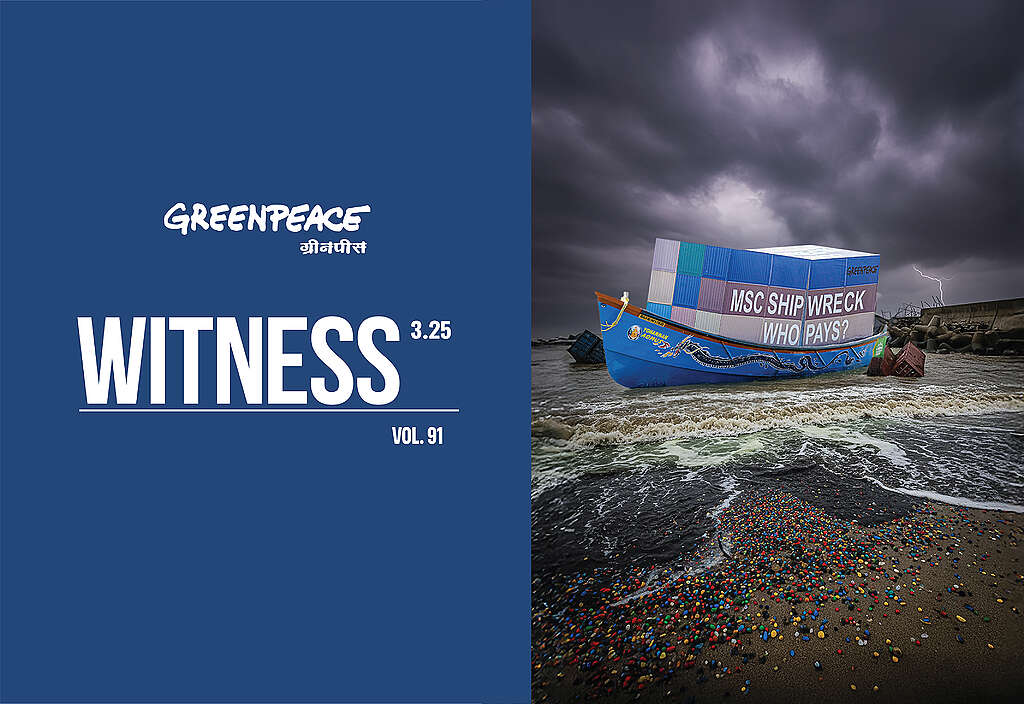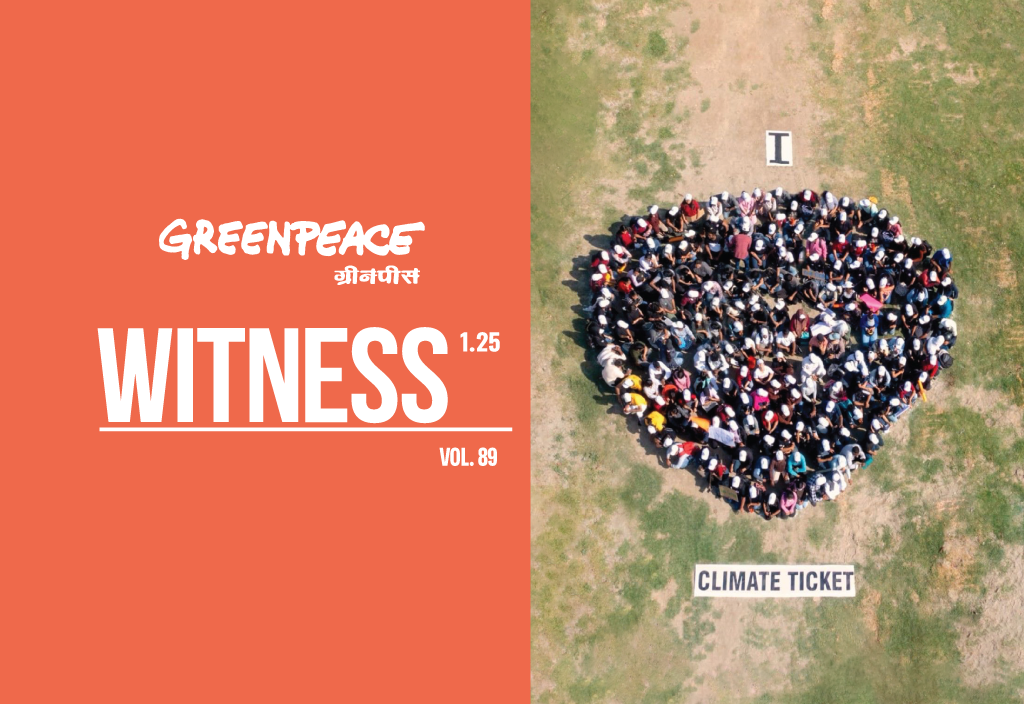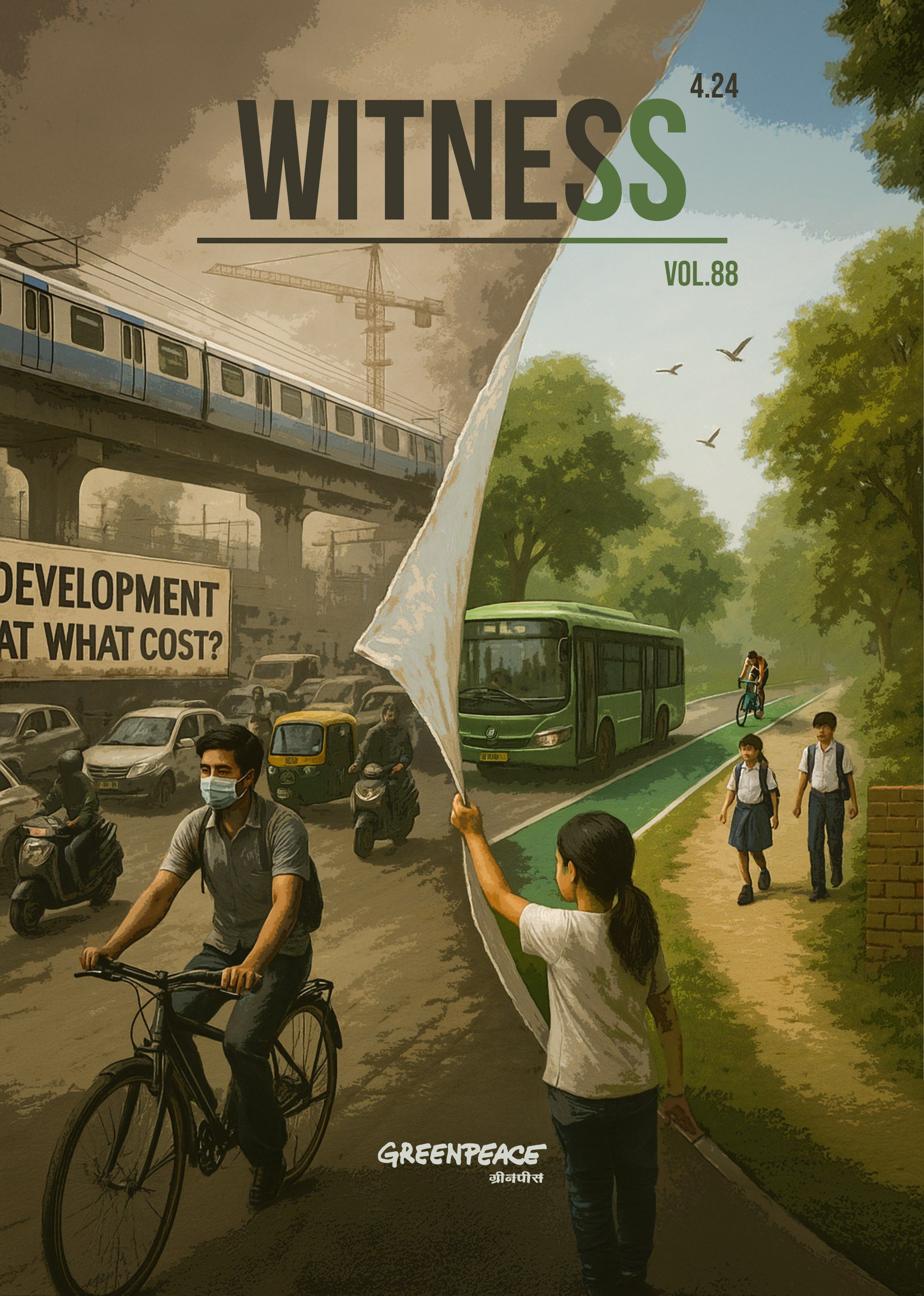
This quarter tracks two fronts of the climate crisis: a coastline poisoned by a shipwreck and a capital pushed to its limits by heat. The details differ, but the question is the same — who pays for the cost of the climate crisis?
On the Kerala coast, the MSC ELSA-3 spill scattered oil, chemicals, and nurdles across 120 km. Fishers mapped the damage long before authorities acted. Working alongside them, Greenpeace India exposed undisclosed cargo, documented losses, and demanded accountability. In Delhi, the heat may have eased, but its imprint stayed. Across both crises, the clearest truths come from the ground: from fishers tracing oil slicks to residents documenting vanishing commons. Their work shows what power avoids: those who cause the harm must answer for it.
These lessons shape the City Forward Imaginarium, an upcoming campaign to reimagine our cities. Where green and blue spaces matter, mobility is fair, public infrastructure works, and every life is protected equally. But imagination cannot stand in for responsibility. Communities have done their part. Now power must act with the urgency people already live with. Resilience cannot remain a personal burden; it must become public policy.



